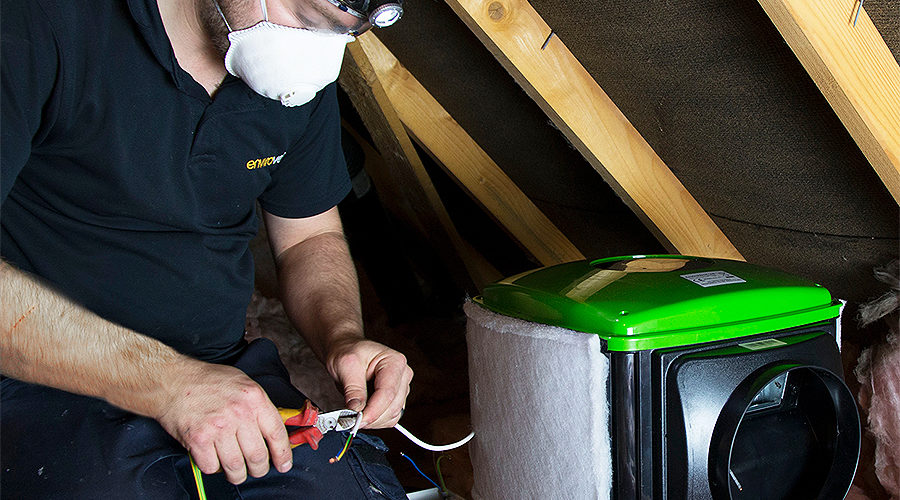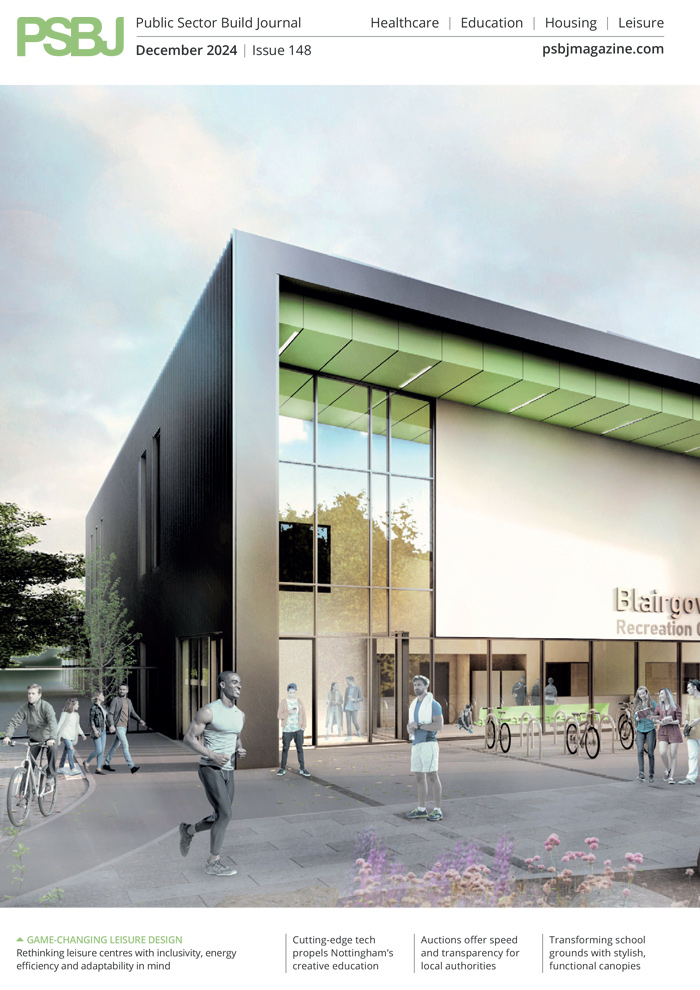Ruth MacEachern, Product Manager at EnviroVent, looks at how social housing providers can meet current and future ventilation requirements.
EnviroVent
Social landlords have, over the last few years, been encouraged to build to Energy Performance Certificate (EPC) Band A – the highest energy-efficiency rating. Meeting these increased environmental standards can protect households from high energy bills whilst lowering carbon emissions.
However, change is on the way. After an extended consultation period for the confirmation of the implementation of the interim Future Homes and Building Standard (FHBS), the new Home Energy Model (HEM) was announced, which set out an ambitious target of reducing levels of carbon in new homes by 75% by 2025. Part of this links to the revision of Approved Document F, including further emphasis on environmental conditions such as acoustics, overheating and indoor air quality.
As the specification of building fabric becomes more stringent and building envelopes become tighter, ventilation specification must also evolve. As a business, our technical specialists are working closely in line with all the relevant industry trade associations to influence and understand the compliance needs of the future.
The current housing shortage has seen the Build Social campaign calling for 90,000 social-rented homes to be built per year over the next decade in England. The campaign calls for 7700 social-rented homes a year to be built in Scotland and 4000 social-rented homes a year in Wales. Social housing providers are under increasing pressure to deliver airtight homes with good indoor air quality quickly and sustainably.
The portion of overall build relating to modern methods of construction (MMC) versus traditional build is increasing, with volumetric and timber frame-style construction preferred to ensure a quick and airtight build. Our experience in providing low-carbon, effective ventilation systems for these modular homes is proving invaluable as this building method grows in popularity.
Passivhaus standard
In recent years, and with ever-tightening Building Regulations, it has become more important that social housing providers work more closely with ventilation manufacturers to create effective solutions to the issue of good indoor air quality.
Increasing numbers of social housing providers are choosing to build to the Passivhaus standard, which is rapidly setting a benchmark for energy-efficient buildings. Scotland has passed a bill through the Government relating to a Passivhaus or equivalent legislation with conversions ongoing in terms of implementation.
Passivhaus, obviously, presents another dimension of the need for energy-efficient ventilation systems. Achieving Passivhaus certification requires meticulous attention to detail in terms of insulation, airtightness, ventilation and overall energy performance. MVHR fits into this framework, providing a comprehensive solution that addresses the requirements of Passivhaus construction. Social housing providers need to seek Passivhaus-compliant MVHR systems, approved by the Passive House Institute, which provide optimised ventilation with a significant improvement in indoor air quality and reduced overall energy consumption.
Innovations
Many social housing providers are looking to be able to more closely monitor the operations of their installed ventilation units to ensure they operate effectively to eliminate condensation and enhance indoor air quality. This information can then be used to make necessary adjustments or repairs to optimise the system’s efficiency. This means they are able to protect themselves against disrepair cases and reduce complaints about condensation and mould, providing clarity on running costs and energy usage.
Effective ventilation
Effective ventilation system design can go a long way towards addressing the potential challenges posed by airtightness, with the result being improved indoor air quality, energy efficiency and reduced carbon emissions.
Mechanical ventilation systems play a vital role in enabling airtight buildings to benefit from high levels of indoor air quality for the long term.
EnviroVent offers a completely free design service for social housing providers, which includes its specialist design team providing detailed technical drawings to fully comply with Passivhaus methodology, the latest Building Regulations and SAP.
This is backed up by technical and onsite support to help every customer on their journey towards greater indoor air quality.












